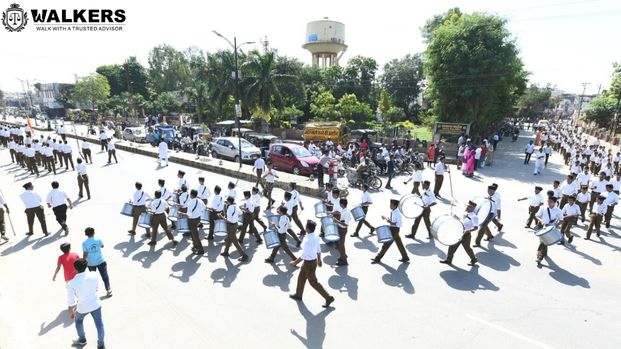


The Supreme Court heard arguments on Monday regarding the Tamil Nadu government's appeal against a division bench of the state high court's decision to allow Rashtriya Swayamsevak Sangh (RSS) to conduct route marches without the conditions set by a single judge. The court reserved its verdict after hearing from both the state government's counsel and the right-wing nationalist organization. Justice V Ramasubramanian, along with Justice Pankaj Mithal, made up the division bench and stated that they will consider and issue an order on the matter.
The former Attorney General of India, Mukul Rohatgi, has stated that there is no absolute right or ban on the Rashtriya Swayamsevak Sangh (RSS) conducting processions. Rohatgi made the statement while representing the RSS in the Supreme Court of India, which is hearing the Tamil Nadu government's appeal against a division bench of the state high court's decision to allow the RSS to conduct route marches without the conditions set by a single judge. Rohatgi argued that the RSS had been conducting processions for the last 90 years and had never been involved in any violence. He further added that the right to hold processions is a fundamental right under the Constitution, subject to reasonable restrictions.
During the hearing of the Tamil Nadu government's appeal against a division bench of the state high court's decision to allow the Rashtriya Swayamsevak Sangh (RSS) to conduct route marches without conditions, senior advocate Mahesh Jethmalani argued on behalf of the RSS. Jethmalani contended that the right to assemble peaceably without arms, as enshrined under Article 19(1)(b), should not be restricted without a strong justification. He criticized the condition set by the state government that the procession should be conducted indoors, arguing that processions are not merely for the benefit of private organizations but are also a means of making public statements and highlighting issues in the public domain. He further stated that such a right should be exercised in full public view.
Senior advocate Mukul Rohatgi, representing the Tamil Nadu government, argued that there cannot be an absolute right or ban on holding processions. Rohatgi posed a question to the bench, asking whether there is a vested right for any organization to march in any location they wish, including the India Gate or Supreme Court premises. He defended the government's decision to impose conditions on the Rashtriya Swayamsevak Sangh (RSS) route marches, stating that the state government had allowed the RSS to conduct processions in some locations while requiring them to make suitable alternative arrangements indoors or declining their request in other places to maintain public order and tranquility. Rohatgi argued that the right to hold processions is subject to reasonable restrictions that are necessary for the protection of public order, morality, and the interests of others.
Mahesh Jethmalani, the senior advocate representing the Rashtriya Swayamsevak Sangh (RSS), challenged the decision of the Tamil Nadu government to deny the organization permission to conduct processions based on the threat of violence from the recently banned Popular Front of India (PFI). Jethmalani argued that such a decision cannot be made solely on the basis of intelligence reports and threat perception. He further stated that the government's refusal to grant permission was a violation of the fundamental right to assemble peacefully without arms under Article 19(1)(b) of the Constitution. Jethmalani pointed out that the RSS had been conducting processions for almost a century without any incidents of violence and that the state government's decision was an infringement of their rights.
Senior Advocate Maneka Guruswamy, representing the RSS, argued that the right to peaceably assemble and march in public spaces cannot be curtailed without a well-founded fear of escalation of hostilities. She criticized the status report filed by the Tamil Nadu police, stating that it reduces the concept of public order and reasonable restrictions on exercising Article 19 rights to a mere status report. Guruswamy emphasized the importance of Article 19, which allows the freedom of assembly and was envisioned by those who marched under duress during the colonization period. She stated, "In this free country, 70 years on, can public order and reasonable restriction be reduced to this sort of status report?"
Case Title:
Phanindra Reddy, IAS & Ors. v. G. Subramanian | Special Leave Petition (Civil) No. 4163 of 2023
TAGS: SUPREME COURT OF INDIASUPREME COURT 2023 JUSTICE V RAMASUBRAMANIAN JUSTICE PANKAJ MITHALRASHTRIYA SWAYAMSEVAK SANGH